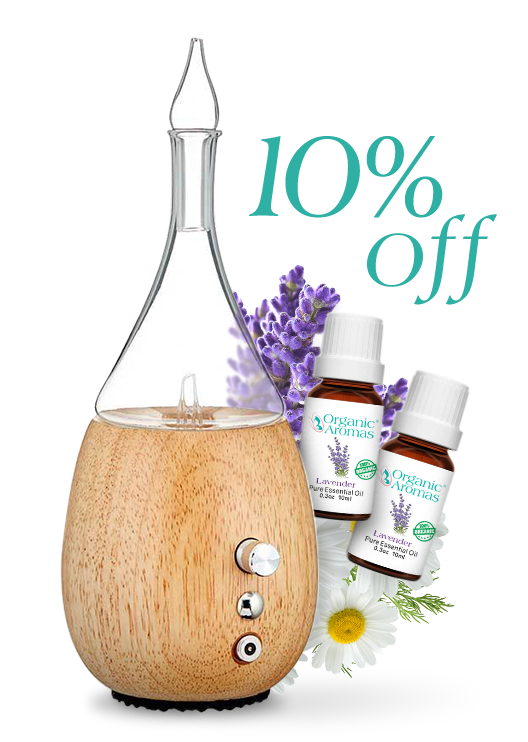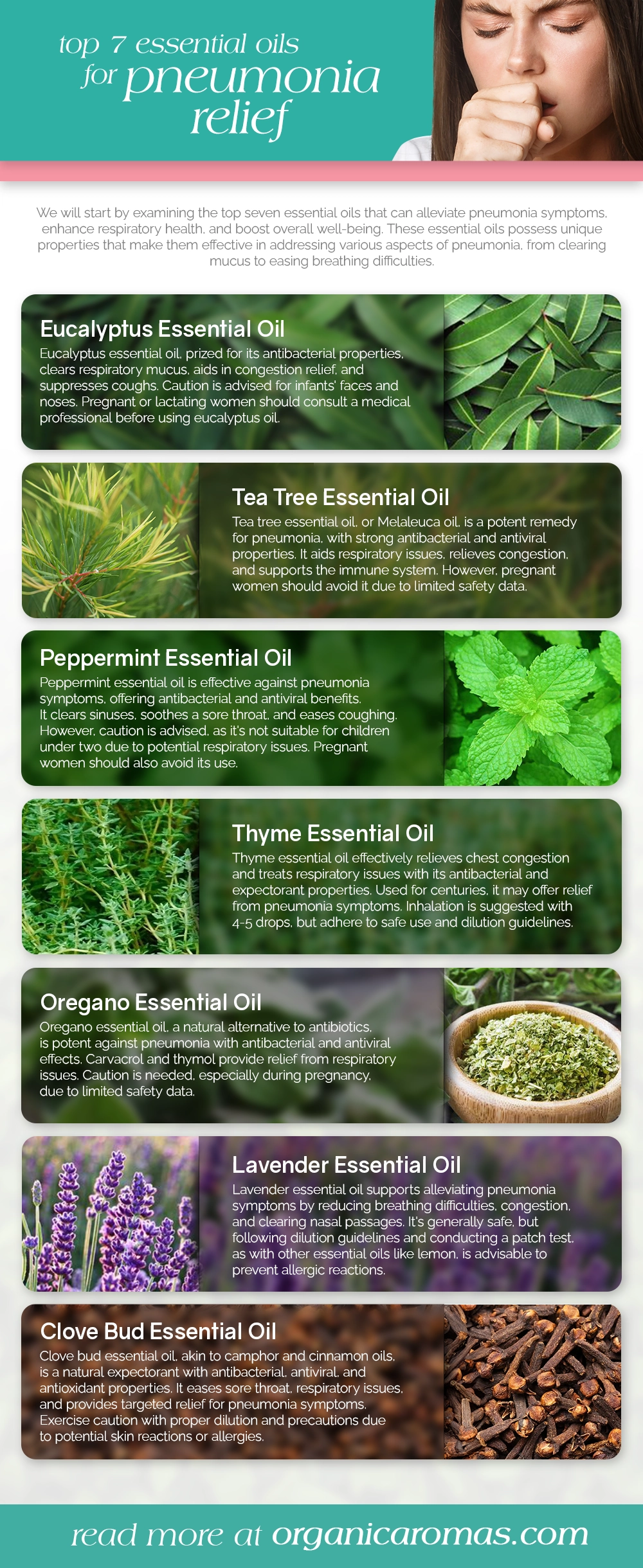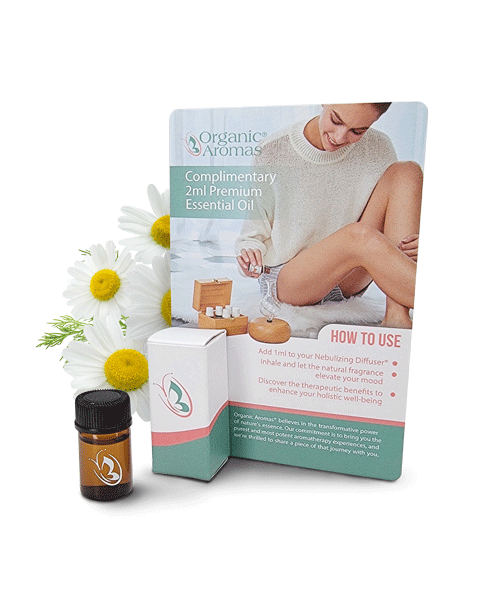Best Essential Oils for Pneumonia?
Pneumonia can be a challenging and uncomfortable experience, but did you know that essential oils may offer natural relief from its symptoms? As you embark on this journey to discover the power of essential oils, you are about to unveil their potential in alleviating pneumonia symptoms and supporting respiratory health. Let’s dive in and explore the best essential oils for pneumonia – these aromatic wonders that have been used for centuries to address various health concerns.
Key Takeaways
- Discover the top 7 essential oils that can provide relief from pneumonia symptoms and improve respiratory health.
- Learn how to safely use these essential oils for better respiratory health, including dilution methods, inhalation techniques and topical application precautions.
- Get expert advice on selecting high quality essential oil products for treating pneumonia.
Top 7 Best Essential Oils for Pneumonia Relief

We will start by examining the top seven essential oils that can alleviate pneumonia symptoms, enhance respiratory health, and boost overall well-being. These essential oils possess unique properties that make them effective in addressing various aspects of pneumonia, from clearing mucus to easing breathing difficulties.
Eucalyptus Essential Oil
Eucalyptus essential oil has long been used for its antibacterial and expectorant properties. This powerful oil can effectively:
- Clear mucus from the respiratory system, making it easier to breathe and providing relief from congestion
- Be a beneficial addition for over-the-counter balms and chest massages
- Help suppress coughing
However, certain precautions should be taken when using eucalyptus oil. It is advised not to apply it to the face, especially the nose, of infants and young children. Pregnant and lactating women should also consult a medical professional before using eucalyptus oil.
Tea Tree Essential Oil
Tea tree essential oil, also known as Melaleuca oil, is another powerful ally in the fight against pneumonia. With its strong antibacterial and antiviral properties, tea tree oil can help treat respiratory issues, alleviate congestion, and support the immune system. Historically, Australian Aborigines crushed tea tree leaves and inhaled them to relieve coughs and colds.
Pregnant women should refrain from using tea tree oil because there isn’t any data confirming its safety during pregnancy.
Peppermint Essential Oil
Peppermint essential oil is another powerful tool in combating pneumonia symptoms. Its antibacterial and antiviral properties can help clear sinuses, soothe a sore throat, and ease coughing. The cooling sensation produced when inhaling peppermint essential oil can also provide relief for a scratchy throat.
Peppermint essential oil is not advisable for use in children under two years of age as it could trigger reflex apnoea and laryngospasm. Pregnant women should also avoid it.
Thyme Essential Oil
Thyme essential oil is effective in relieving chest congestion, clearing mucus, and treating respiratory issues due to its antibacterial and expectorant characteristics. Thyme oil has been used for centuries to treat respiratory disorders and may provide relief from pneumonia symptoms.
For inhalation, it is recommended to use 4-5 drops of thyme oil. However, always ensure to follow the guidelines for safe use and dilution of essential oils.

Join Now and Get a Coupon for 10% Off!
Oregano Essential Oil
Oregano essential oil is known for its potent antibacterial and antiviral effects, making it a natural alternative to antibiotics for treating pneumonia. The active components of oregano essential oil, carvacrol and thymol, can help combat bacterial and viral infections, providing relief from respiratory issues associated with pneumonia.
Oregano essential oil usage should be cautious, particularly during pregnancy, due to the lack of data verifying its safety.
Lavender Essential Oil
Lavender essential oil can play a supportive role in alleviating pneumonia symptoms and promoting respiratory health. It has been observed that lavender essential oil can help reduce breathing difficulties, congestion, and clear nasal passages. Lavender essential oil can also help treat other respiratory ailments, such as bronchitis, colds, and throat infections.
Although using lavender oil, a popular essential oil, is generally deemed safe, it is always advisable to adhere to correct dilution guidelines and conduct a patch test to eliminate the possibility of allergic reactions, just as you would with lemon essential oil.
Clove Bud Essential Oil
Clove bud essential oil is a natural expectorant with anti inflammatory properties, similar to camphor essential oil and cinnamon essential oil, and has the following additional properties:
- Antibacterial
- Antiviral
- Antioxidant
It can help ease sore throat and respiratory issues, and provide targeted relief for pneumonia symptoms. This makes it a valuable addition to your essential oil arsenal.
Remember to follow proper dilution guidelines and precautions when using clove bud essential oil, as some individuals may experience skin reactions or allergies.

How to Use Essential Oils Safely for Pneumonia

Having explored the top essential oils for pneumonia relief, we will now examine the correct and safe methods to use them. Following guidelines and precautions for diluting essential oils, inhalation methods, and topical application is essential for maximum effectiveness and safety.
Diluting Essential Oils
Diluting essential oils is of utmost importance for safe use, as concentrated oils can cause skin irritation or other unfavorable effects. The general guideline for diluting essential oils for topical applications is a dilution ratio of 1-2%, which means adding one to two drops of essential oil per teaspoon of carrier oil.
Some known carrier oils for diluting essential oils for pneumonia include eucalyptus oil, peppermint oil, anise oil, bitter fennel fruit oil, tea tree oil, and thyme oil.
Inhalation Methods
Inhalation methods, such as diffusers or steam inhalation, can help deliver the benefits of essential oils directly to the respiratory system. One recommended method for inhaling essential oils for pneumonia relief is to add a few drops to a pot of hot water, cover your head and the pot with a towel, and inhale the steam. This process can be repeated 2-3 times daily for maximum relief.
Another effective method of inhalation is using an essential oil diffuser. Here’s how to use it:
- Fill the water tank with clean water.
- Add a few drops of your chosen essential oil.
- Activate the diffuser to disperse the oil into the air.
- Position yourself near the diffuser and inhale the aromatic mist.
- Repeat the process as needed for respiratory relief.
Topical Application
Topical application of essential oils, when properly diluted, can provide targeted relief for pneumonia symptoms. It is important to follow proper dilution guidelines and be aware of any potential skin reactions or allergies when applying essential oils topically for pneumonia relief.
To avoid irritation, geranium essential oil, like other essential oils, should be diluted with a carrier oil prior to application on the skin.
Essential Oil Blend Recipes for Pneumonia

To further enhance the benefits of essential oils for pneumonia relief, you can create your own essential oil blend recipes. These custom blends can combine the power of several essential oils to provide targeted relief from pneumonia symptoms and support respiratory health.
Precautions and Considerations
Before starting to use essential oils for pneumonia relief, understanding the precautions and considerations related to their usage is important. Some essential oils may have contraindications or potential interactions that need to be taken into account, such as eucalyptus essential oil, which can cause dermatitis, toxicity when ingested orally, and bronchospasm.
Additionally, it is crucial to:
- Perform a patch test
- Consult with a healthcare professional if you experience any allergic reactions to essential oils
- Always follow proper dilution guidelines and safety precautions when using essential oils for pneumonia relief.
The Role of Essential Oils in Respiratory Health
Essential oils, which have been used for centuries to address various health concerns, play a particularly significant role in promoting respiratory health. With their antibacterial, antiviral, anti-inflammatory, mucolytic, and bronchodilator effects, essential oils hold great potential in treating various respiratory tract diseases, including pneumonia.
Incorporating essential oils into your healthcare routine can help you leverage their benefits to support respiratory health, alleviate pneumonia symptoms, and enhance overall well-being. Whether you prefer inhalation methods, topical application, or creating your own essential oil blend recipes, these aromatic gems can provide valuable support in your journey towards better respiratory health.

Sign Up to Get Your FREE Essential Oils e-Book Here
Expert Tips for Choosing High-Quality Essential Oils
Choosing high-quality essential oils for pneumonia relief is necessary to ensure maximum effectiveness and safety. When selecting essential oils, look for labels that include the following information:
- Latin name of the plant
- Plant parts used
- Type of extraction
- Growth method (e.g., organic)
- Single ingredient (the name of the plant)
You can also distinguish between pure and synthetic essential oils by their aroma. Pure essential oils have a robust aroma that closely resembles the plant they are derived from, while synthetic oils may have a less pronounced or artificial smell.
By following these expert tips and being diligent in your selection process, you can ensure that the essential oils you use for pneumonia relief are of the highest quality and potency, providing you with the best possible support for your respiratory health.
Summary
Essential oils can be a powerful ally in your battle against pneumonia and in promoting overall respiratory health. By carefully choosing high-quality essential oils, following proper usage guidelines, and incorporating them into your daily routine, you can harness their incredible benefits and breathe easier on your journey to better health. Embrace the power of nature and let these aromatic wonders support you in your fight against pneumonia.
Frequently Asked Questions
What essential oil clears lungs?
Eucalyptus, Rosemary, Peppermint, Frankincense, Oregano, Thyme, Geranium, and Cinnamon essential oils have all been known to help clear the lungs.
What essential oil pulls out infection?
Tee tree, thyme, lemon and lemongrass oils are effective at treating methicillin-resistant Staphylococcus Aureus (MRSA), an infection that requires treatment.
What essential oils are good for fighting bacteria?
Peppermint, orange, and lemongrass essential oils are great for fighting off bacteria.
What are the top 7 essential oils for pneumonia relief?
The top essential oils for providing relief from pneumonia are Eucalyptus, Tea Tree, Peppermint, Thyme, Oregano, Lavender, and Clove Bud.
How do I dilute essential oils for safe use?
To safely dilute essential oils, combine 1-2 drops of the oil with a teaspoon of carrier oil for every 1-2% of the total solution.




I am a big fan of natural healing methods and especialy aroma therapy oils. I do believe there is room for complementary healing afterall a lot of the content in drugs used are found in nature. We can fly to the moon but we cant stop nature doing what it does – good or bad!!!
For Pneumonia use mention Lemon & Lavender do u use together or separately in a diffuser?
I love integrating essential oils into any health-related experience. I have learned over the years to use them frequently, and less is more. Another integrated therapy would be acupuncture and herbs. Create a layering of various therapies that are harmonious to help support what the Doctor is doing.
At age 29 I was diagnosed with Bronchitis. At that time I had been a smoker for at least for 2 year. My doctor admonished me that if I didn’t quit, the bronchitis could turn into COPD. I had not quit and by the time I was 41, I was diagnosed of COPD. I had severe shortness of breath after energetic activity; even just climbing stairs, wheezing, fatigue and tightness of the chest. I was on Advair and albuteral inhaler. I even used Prima Tene Mist inhaler, but nothing really made me feel better. About two years ago, I began to do a lot of research and learnt about a COPD TREATMENT from Rich Herbs Foundation and their success rate with the treatment,i immediately started on the treatment, i started experience reduction/decline in major symptoms, including the shortness of breath, fatigue, cough and wheezing. Visit RHF page ww w. richherbsfoundation. c om. Its been over 1 years since treatment, i feel great and breath well
How to use a regular coil if you don’t have a spleen and you might have pneumonia
What is a regular coil I have pneumonia and I have no spleen
My mother is in the hospital from a massive stroke. She’s on a ventilator (trach in her neck) They just told me this morning that she has developed pneumonia. They are starting the antibiotics right now. How will the oils help her and which ones should I use?
How interesting I would love to try clove and rosewood they sound gorgeous and how wonderful if they can also help with the effects of pneumonia
I never would have thought to try this but I will definitely pass this on to my mum who will love it! I think essential oils are a wonderful addition to modern medicine and cures
I didn’t know this. I have a lot to learn about essential oils.
Lavender and Lemon help with pneumonia. I do see more oils help as well. To me it is amazing how oils help with different ailments you may have.
Pneumonia is horrible. I had it a few years ago and it took forever to fully recover. Thanks for posting this to help prevent my kids getting it.
Thank you for this post! I’ve had pneumonia, and it is not fun. I will be sharing this with others 🙂 And I love tea tree and camphor!
lemon & pine
Two essential oils that control pneumoia are oregano and tea tree.
Oregano Thyme Tea Tree Essential Oil Eucalyptus Peppermint Lavender Camphor Cinnamon Clove Rosewood
Lavender and Lemon
Many essential oils help such as Lemon Essential Oil.
Very interesting. I didn’t know that essential oils can help prevent illness.
Interesting information.
essential oils are true healers.
Love this article.
Lavendar amd Lemon essential oils will help boost ones immune system.
I can’t wait to try essential oils.
Interesting I get bronchitis or pneumonia every year during cold season. I’d like to try this.
The power of essential oils is amazing. Great article
All help – Oregano Essential Oil
Thyme Essential Oil
Tea Tree Essential Oil
Eucalyptus Essential Oil
Lavender Essential Oil
Camphor Essential Oil
Cinnamon Essential Oil
Clove Essential Oil
Rosewood Essential Oil
Great to read about all the essential oils – one example is Tea Tree Essential Oil
I knew about most of those but some were surprises. Thank you for the information.
Another great article introducing me to essential oils I wouldn’t have thought of trying – thyme and oregano?!
The essential oils are Lemon Bergamot Lavender and Pine
My grandmother has suffered from pneumonia quite a lot lately. I will have to tell her about these essential oils. Thanks.
Would adding essential oils to Steam inhalation therapy add the same kind of benefits?
Great post, very informative!
So many benefits from the Essential Oils. I need to take advantage of these benefits. Thank you for the great info.
One time I had pneumonia for almost 2 weeks….only thing that finally got rid of it was Oregano oil. However, lots of oils help with pneumonia like peppermint oil, thyme oil and clove oil! Thank you for this chance.
Essential oils are amazing. Great for so many things.
Lavender oil is my favorite. I use it in my bedroom all the time. It is relaxing and soothing and now I know it also helps with respiratory issues. win. win.
Oregano Essential OilThyme Essential OilTea Tree Essential OilEucalyptus Essential OilPeppermint Essential OilLavender Essential OilCamphor Essential OilCinnamon Essential OilClove Essential OilRosewood Essential Oil
I did not know before that Rosewood was beneficial for pneumonia. I did learn from this article.
Oregano Essential OilThyme Essential OilTea Tree Essential OilEucalyptus Essential OilPeppermint Essential OilLavender Essential OilCamphor Essential OilCinnamon Essential OilClove Essential OilRosewood Essential Oil
You learn something new everyday, like Oregano Essential Oil, Thyme Essential Oil, Tea Tree Essential Oil, Eucalyptus Essential Oil, Peppermint Essential Oil, Lavender Essential Oil, Camphor Essential Oil, Cinnamon Essential Oil, Clove Essential Oil, and Rosewood Essential Oil help control pneumonia.
Eucalyptus Oil works best for me
Oregano Essential OilThyme Essential OilTea Tree Essential OilEucalyptus Essential OilPeppermint Essential OilLavender Essential OilCamphor Essential OilCinnamon Essential OilClove Essential OilRosewood Essential Oil
All of these help with pneumonia.
The more I read on what essential oils are good for, the more I get fascinated with wanting to more and try them all out.
Lots of interesting information!!
Oregano Essential OilThyme Essential OilTea Tree Essential OilEucalyptus Essential OilPeppermint Essential OilLavender Essential OilCamphor Essential OilCinnamon Essential OilClove Essential OilRosewood Essential Oil
Oregano Essential Oil
Thyme Essential Oil
Tea Tree Essential Oil
Eucalyptus Essential Oil
Lavender Essential Oil
Camphor Essential Oil
Cinnamon Essential Oil
Clove Essential Oil
Rosewood Essential Oil
Wow, didn’t even know essential oils had an impact oh health conditions. Interesting
My girlfriend currently has pneumonia. Sending her the link to this page. Thanks.
That’s really awesome how there is such a wide variety of oils effective against pneumonia, as well as the prevention of it. And that it is safe for an age range so broad.
Oregano Essential OilThyme Essential OilTea Tree Essential OilEucalyptus Essential OilPeppermint Essential OilLavender Essential OilCamphor Essential OilCinnamon Essential OilClove Essential OilRosewood Essential Oil
All of these help with pneumonia.
I love all the information you provide on essential oils….I have learned so much from you. 🙂